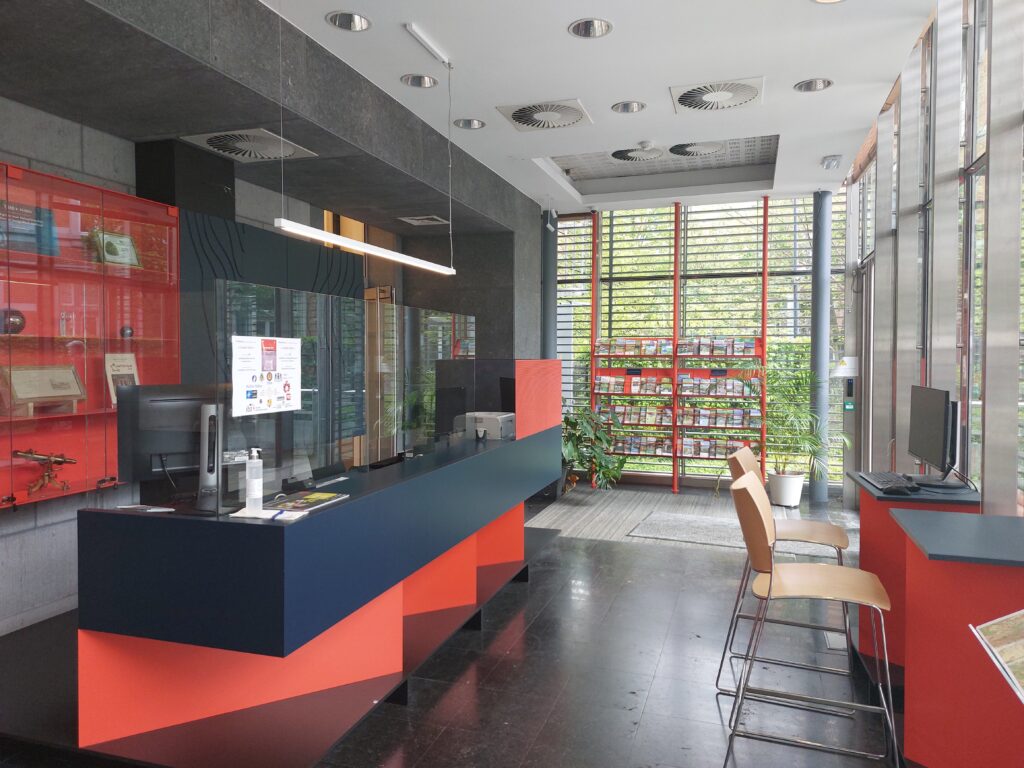We had an opportunity to visit the National Geography Institute (NGI) in Brussels, Belgium, during ODECO training week 4, organized by KU Leuven. They presented us with their current work in different regions of Belgium; they produce customized maps. Various organizations in Belgium, including the fire department, the police department, and other stakeholders (e.g., tourists), use the maps they produce. For example, they produce paper-based, tailored maps for different areas to generate revenue from these maps. Simultaneously, they contribute significantly to the open geospatial data cases in different sectors – (More information can be found here: https://ngi.be/cases/). One of their datasets can be found on the Brussels open data portal regarding the train stations (https://shorturl.at/1evvj).

Photo captured by one of the ODECO ESRs at the NGI/IGN
Despite their current efforts, funds, and resources, the NGI faces various challenges at different levels. The department representative told us that in recent years, their map sales have drastically decreased. The cause of this decrease is the shift of paradigm from paper to digital map availability. Map users like to have digital maps rather than very less wants paper maps. As the map industry becomes more competitive, numerous online platforms and local vendors produce maps in large quantities and at reasonable prices, catering to digital and paper-based mapping needs.
During this long discussion, we concluded that to generate additional revenue, open data providers or publishers should consider developing new applications using their data. The idea of developing data products or new applications, along with co-creation and co-innovation, can generate revenue for open data stakeholders, enabling them to contribute more to the open data ecosystem and increase the circularity of value distribution. Furthermore, funding for producing open data poses a significant challenge in the current open data landscape.
Authors:

Mohsan Ali
University of the Aegean


